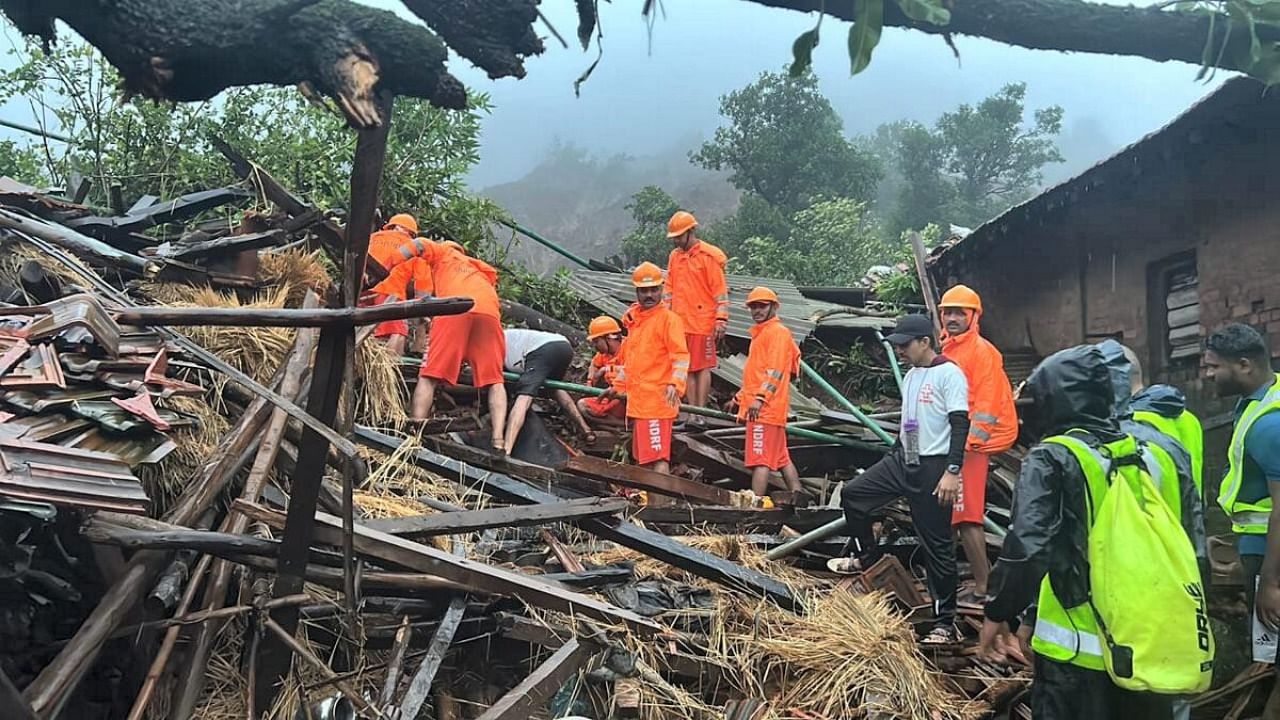
Stating that the Irshalwadi landslide tragedy is a wakeup call, environmentalists have called for an immediate ban on all quarries across the hills and a thorough study of the eco-sensitive areas such as Raigad and Thane districts neighbouring the financial capital of Mumbai.
The continuous and high intense blasts have far-reaching impact in terms of loosening the soil on the hill slopes which could cause landslides, NatConnect Foundation and Shri Ekvira Aai Pratishthan (SEAP) said in their email to Maharashtra Chief Minister Eknath Shinde.
A number of quarries are functional at various places in Raigad district and it is high time that a dedicated Hill Development Regulatory Authority is formed to check indiscriminate mining, NatConnect director B N Kumar said.
“We, environment lovers, have been cautioning against blasting of hills, deforestation and unregulated development on the hills across the State,” Kumar said and termed the Irshalvadi landslide as “another wakeup call for all of us”.
NatConnect also called for a thorough study of the soil conditions across the hills with the help of Indian Institute of Technology-Bombay and Geological Survey of India.
"The government must quickly study the ecological damage due to the blasting of the hills,” said Nandakumar Pawar, head of Shri Ekvira Aai Pratishthan.
“Undoubtedly, the torrential rainfall has contributed to the landslide. But the previous damage and loosening of the soil due to mining and deforestation and extreme heat could have added to the woes,” Pawar said.
The government needs to check the situation at all such sites in Navi Mumbai, Raigad, Thane, Uran and other quarry sites, the green groups said and called for checking the seismic impact of blasts at all hills and construction sites such as the Navi Mumbai International Airport.
They drew the government’s attention to landslide prone sites such as Parsik Hills, Yeoor Hills, and Kharghar Hills.
"Hills and mountains must be left alone and any kind of development and destruction of trees should not be permitted on and around such ecological sensitive areas, " Pawar said.
The Adivasi and other families in the eco-sensitive zones could be rehabilitated close to their existing habitats under projects such as PM Awaas Yojana, Kumar suggested.